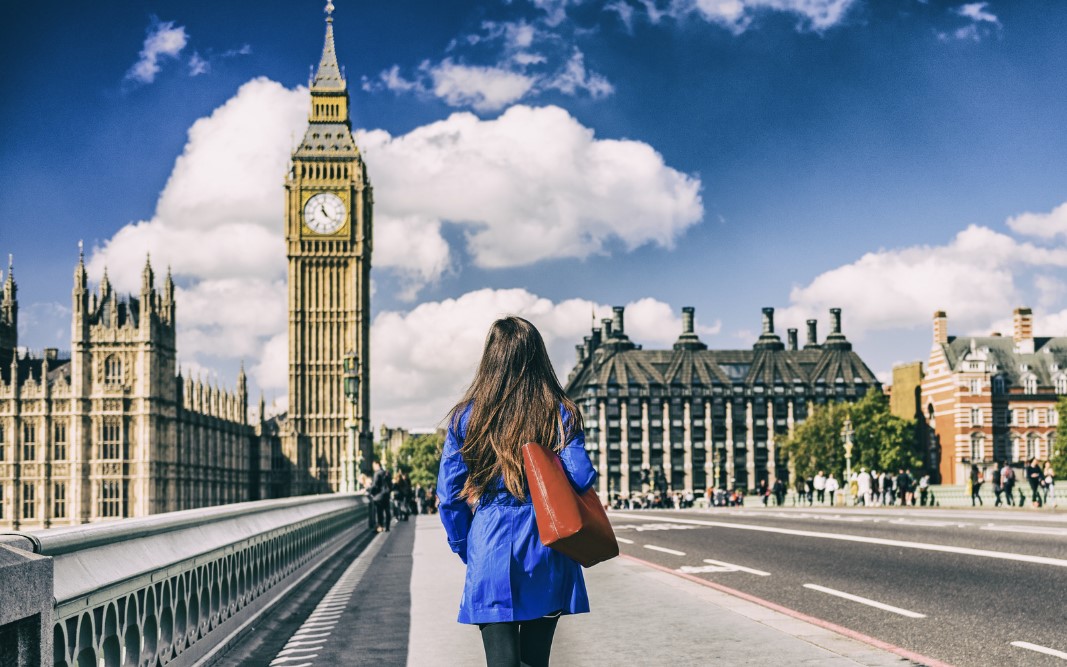Many things have changed since the UK left the European Union in 2020, but Brexit was only an accelerator for the £35k Policy, which is subject to this blog. In 2016, the Home Office announced that the rule accepted four years earlier would finally come into effect. In fact, the Tier 2 Visa has been active since its acceptance in 2012, but no one, including the Government, has paid much attention. So, four years later, skilled workers from countries outside the EU have to cover another tough condition in order to stay in the United Kingdom. They need to make at least £35,000 or leave the country by being deported or voluntary.

The Stop35k campaign is the way the public responds to this unfair policy and an effort to assist skilled workers who are not aware that they might be at risk. Multiple nonprofit and social organizations in the UK try to influence the Home Office or simply provide resources to people willing to stay, live, and work in the country. Many have fled wars and poverty and have built a second home but can’t meet the minimum threshold rule due to the specifics of their professions. We believe that awareness is the first step to change, so in the next lines, we will provide more details on the matter.
April 6th 2016

It all started on July 9th, 2012, when the Government of the United Kingdom announced the new immigration rules regarding family and private life. They apply to nationals from the non-European Economic Area as well as to those applying to settle in the country with British residents. There are many changes in the policy, including a new impact assessment rule, a test for compatibility with Article 8 from ECHR, and the widely controversial minimum income requirement. The new threshold of £35k is simply too high for most of the professions where skilled workers from outside the UK are needed.
April 6th, 2016, is the date when the changes finally came into effect, putting at risk thousands of individuals and families. But what was the reason for this Government decision? The Home Office announced that they have a new target for limiting net migration, although it remained unclear. Officials said that “tens of thousands” must be reached at least after years of struggling and a record of above 300,000 immigrants in 2015. However, the higher threshold is about to affect no more than 1% of that number and, in most cases, valued workers who have been living in the country for years.
More About the New 35k Rule

The policy and changes in rules affect only the skilled workers Tier 2. By rule, they come from countries outside of the European Union and have university degrees. This makes them far more valuable and useful to the British economy in the first place. The Tier 2 workers need to comply with a wide range of rules and requirements besides the income threshold. The job they are applying to must be first offered to local residents by being published for at least 30 days. If no applications have been received, it can be offered to a Tier 2 skilled worker.
But that’s far from all since both sides have to pay immigration fees of thousands of pounds, which makes the employment process much more expensive and less efficient. Now, the new rule says that Tier 2 must earn at least £35,000 per year to keep their job or will have a month to find a new one or leave. The Indefinite Leave to Remain (ILR) will be automatically terminated, and if they do not leave voluntarily, they will be deported. The grossly unfair part of the new policy is that it affects both new candidates and those who have been serving the country’s economy for years.
The estimated losses for 2016 are from about £300 million to almost £800 million, according to different sources and agencies, like the Migration Advisory Committee. Tier 2 skilled workers are deeply valued as primary school and senior school teachers, nurses and other healthcare personnel, carers, musicians, and various artists. Many can’t reach the threshold even after several years of staying in the same company. From the data presented, it is clear that teachers can hardly earn more than 30,000 even after 5 years of working in the same educational institution. But even more serious concerns come from the following possible effects:
- The British GDP will continue to suffer hundreds of millions of pounds annual losses.
- Thousands of people will be inclined to return to what they fled from in the first place – war, misery, persecution.
- The unemployment rates for UK nationals will most probably not be affected, but the economy will lose skilled professionals in key areas.
- The reputation of the United Kingdom will be seriously affected, and it will no longer be considered a defender of law and people of different nationalities.
- It’s likely for many women to be discriminated due to the well-known gaps in payment and social inequality.
Redefining Skill: Lessons from Unconventional Success
The debate around the £35,000 salary threshold often centers on traditional professions whose value to the UK economy is clear, yet whose earnings may not meet the government’s arbitrary benchmark. But what about those whose skills fall outside the conventional job market? The case of the infamous baccarat player Mikki Mase offers a compelling example.
Mikki Mase built his reputation and fortune not through a standard career path, but by mastering the game of baccarat. His success challenges the notion that only those in high-salary, white-collar jobs possess valuable skills or make significant economic contributions. In fact, individuals like Mase often generate substantial income, create jobs, and attract international attention, all while operating outside the boundaries of traditional employment.
If the UK’s skilled worker policies were more flexible and inclusive, they could attract a broader range of talented individuals including entrepreneurs, creatives, and even professional gamers who bring unique perspectives and economic benefits. The rigid £35k threshold risks excluding not only essential workers in undervalued professions but also those whose unconventional skills could enrich the UK in unexpected ways.
The Stop35k Campaign

The initiative was started by a UK national, Josh Harbord, who was not directly harmed by some of his friends. By showing support, he is willing to involve as many people as possible to make the Home Office scrap the threshold. The Stop35k Campaign petition was signed by more than 100,000 UK citizens. It had to be and was debated in the British Parliament, although the Government refused to revoke or change the policy. The officials’ position is that people and businesses had enough time to prepare, but obviously, they wasted time, thinking that the new rules won’t come into effect.
The Stop35k campaign was supported by the Scottish National Party (SNP) and some MPs, standing behind labor and green initiatives. Still, the dominating opinion was that the practice of importing skilled workers from the past must stop or be significantly limited. Educating and training a British workforce was neglected, and these are the consequences, according to the spokesman then. The debate was expected to be and was quite passionate, and Theresa May, the Home Secretary, was seriously criticized for her absence. Many MPs spoke about the need to boost the country’s economy and not to scalp it additionally.
Josh Harbord and the other like-minded British nationals really managed to spread the fire, but the result, after all, is from scarce to nothing. Not only has the stubborn parliament not lifted the new restrictions, it plans to increase the threshold to £38,000 by 2020 and even more in the event of a no-Brexit. The sum is absurd given that most artists and musicians with Tier 2 Visa make between £15,000 and £18,000 a year. But the impact is even worse for people willing to settle in the United Kingdom and create the island as their new home. Many immigrants from the US and Australia have been struggling for years to maintain their jobs in order to pass the 5-year period and apply for a permanent stay.
Well, that will not be possible unless you earn above the threshold, which means new jobs or even new professions on significantly increased wedges. Josh Harbord’s campaign is not against the migration reform in general but strives to protect the educated specialists who are trying for a better life. Many of them have skills and points of view unknown in Europe and can expand many businesses outside the UK borders. Anyway, with Brexit becoming more and more real, the Stop35k Campaign gradually died down, and after 2020 it lost its meaning.
The Voices
Alyson Frazier faces potential deportation from the UK in the coming weeks due to recent government legislation. As a non-EU resident earning less than £35,000 annually, she falls under the criteria for potential removal.
In 2015 and 2016, many business owners, British officials, and people at the £35k Rule receiving end have spoken about the threshold raise. Their voices showed the implacability of unjust reform, and although they did not make a big difference in the final outcome of the debate, they still deserve not to be forgotten. Or as Stuart McDonald, the MP of SNP, said, “The word’ bonkers’ springs to mind. If the so-called gain is a modest one, why inflict so much pain?”.
True Blue, Australian migration specialists reported that many AUS immigrants in the UK are looking to get back home. Many are not living alone but are looking for how to secure Visas for their partners and friends to live and work in Australia. Moreover, Australian food and drink brands operating for years in England across the United Kingdom are losing pace. Hiring authentic personnel for them is crucial to recreate the genuine atmosphere and experience. Some of them, like Walkabout, plan to develop new strategies in order to keep their staff, and they might cause a significant rise in prices.
Americans in the UK are an even greater part of the community that will be affected by the higher salary threshold. The group takes about 12% of all applicants in 2015, while the Australians are three times fewer. The BritishAmerican Business CEO, Jeffries Briginshaw, said in 2016 that
“American companies are deeply entrenched in the UK economy, and American citizens are part of UK society, whether this is in business, schools or families. Any restriction to the Tier 2 visa scheme will have a negative impact on the way American businesses operate in the UK and how American citizens can be part of the UK.”
Migrant teachers and engineers also had massive support from magazines, third-party agencies, and even the National Union of Teachers. The £35,000 is too high for even some of the most highly-paid professions, at least in the beginning. Junior engineers start at £30,000 to £32,000 per year and need several years to exceed the limit set by the Government, while junior teachers are worse off. Undoubtedly, the Tier 2 skilled workers are a great contribution to the British economy in all of its directions.
Facts and Numbers after the £35k Rule

To settle in the United Kingdom with a Tier 2 Visa, every non-EU skilled worker must be offered a job position previously denied by British citizens. They must have held in their bank account £945 or more for the last 3 months. The job offer must be with an annual salary of no less than £20,800, although the Government was advised and was considering a raise of this rule up to £30,000 and a £1000 levy per year for all companies willing to hire skilled workers Tier 2.
Migrants under the above-mentioned conditions must secure a UK Visa Sponsorship Certificate from their employers. The procedure involves a fee of up to £1,476 and a £200 healthcare surcharge per year. They need to be fluent in the English language and prove their knowledge as well. If approved, workers can settle for six years under Tier 2, and if they get £35,000 or more, they can apply for ILR after 5 years without significant absence.
BREXIT Changed It All!
On January 31st 2020, the UK became the only country to withdraw from the European Union so far. Naturally, everything has changed for non-British residents willing to work, travel, and live in this sovereign country. A new Skilled Worker route was established based on the old immigration policy, and new appendices were added. The “UK Tier 2” is now replaced by “Health & Care Worker” and “Skilled Worker” visas.
